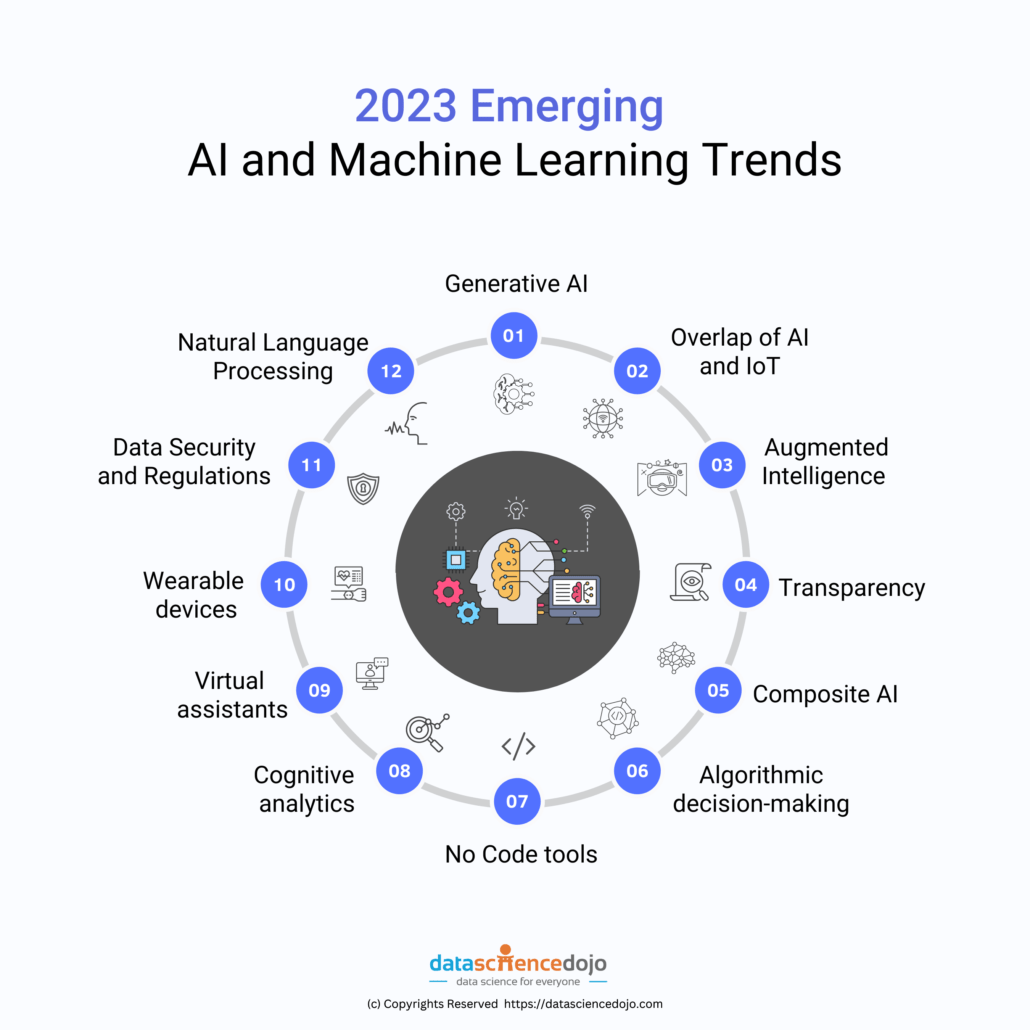XR's New Frontier: AI And The Emerging Platform Competition

Table of Contents
AI-Powered XR Experiences: Enhancing Immersion and Interaction
AI is no longer a futuristic concept; it's the engine powering the next generation of XR experiences. Its impact spans realism, personalization, and content creation, fundamentally altering how we interact with virtual and augmented worlds.
Advanced AI for Realistic Simulations
AI algorithms are revolutionizing the realism of XR environments. Sophisticated physics engines, powered by machine learning, create believable interactions between objects and avatars. Procedural generation, using deep learning, constructs vast and diverse landscapes, eliminating the need for manual creation of every detail. Computer vision enables lifelike avatars that respond naturally to their environment and users' actions.
- Examples: Epic Games' Unreal Engine 5 uses AI for realistic environments; Unity's ML-Agents allows developers to train AI agents for complex game behaviors; NVIDIA's Omniverse leverages AI for collaborative 3D design.
- AI Technologies: Machine learning, deep learning, computer vision, natural language processing (NLP) are key technologies driving these advancements.
Personalized XR Experiences through AI
AI tailors XR experiences to individual users, enhancing engagement and effectiveness. This personalization extends beyond simple settings; it dynamically adapts to user behavior and performance.
- Examples: Adaptive difficulty levels in VR games adjust based on player skill; personalized training modules in medical simulations cater to individual learning styles; customized virtual environments are created based on user preferences.
- AI-driven Recommendations: AI algorithms analyze user data to recommend relevant XR content, optimizing user experience and maximizing platform engagement.
AI-Driven Content Creation Tools for XR
AI is drastically reducing the time and cost of XR content development. Tools utilizing AI automate animation, generate assets, and even design entire environments, democratizing XR creation.
- Examples: AI-powered tools automate 3D model creation, texture generation, and animation sequences. Platforms like RunwayML offer AI-assisted video editing and effects for XR content.
- Benefits: Reduced development time and cost, increased accessibility for smaller studios and independent creators, and the potential for significantly larger and more detailed virtual worlds.
The Platform Battleground: Key Players and Their Strategies
The race to dominate the XR landscape is fierce, with established tech giants and ambitious startups vying for market share. Their strategies are heavily influenced by their AI capabilities and integrations.
Metaverse Platforms and their AI Integration
Meta, Microsoft, and other major players are heavily investing in AI to enhance their metaverse platforms. Their approaches vary, reflecting different strategic priorities.
- Comparison: Meta focuses on social interaction and AI-driven content creation; Microsoft emphasizes enterprise applications and AI-powered collaboration tools.
- Investments: Significant investments in AI research and development, acquisitions of AI startups, and partnerships with leading AI companies.
Emerging XR Platforms and their Unique AI Advantages
Smaller platforms and startups are leveraging AI to carve out unique niches and differentiate themselves from established players.
- Examples: Platforms specializing in AI-powered personalized learning experiences, AI-driven game development tools, or AI-enhanced virtual collaboration environments.
- Disruptors: These newer entrants possess the potential to disrupt the market with innovative AI features and tailored user experiences.
The Role of AI in Platform Interoperability
Seamless integration between different XR platforms is crucial for the future of the XR ecosystem. AI can play a critical role in bridging the gaps between disparate systems.
- Standards and Open Source: The development of open standards and open-source initiatives is vital for promoting interoperability.
- AI-driven Solutions: AI can facilitate data translation and content migration between platforms, enhancing user experience and platform accessibility.
Ethical Considerations and the Future of AI in XR
The rapid advancement of AI in XR necessitates careful consideration of ethical implications. Data privacy, algorithmic bias, and responsible innovation are paramount.
Data Privacy and Security in AI-Powered XR
The collection and use of user data in AI-driven XR applications raise serious privacy and security concerns.
- Vulnerabilities: Potential for data breaches, misuse of personal information, and lack of transparency in data handling practices.
- Data Protection: Implementing robust security measures, obtaining informed consent, and adhering to relevant data privacy regulations are critical.
Bias in AI Algorithms and its Impact on XR
Bias in AI algorithms can perpetuate and amplify existing societal biases, leading to unfair or discriminatory outcomes in XR experiences.
- Mitigation Strategies: Careful data curation, algorithm testing for bias, and ongoing monitoring are essential to address this challenge.
- Diversity and Inclusion: Promoting diversity and inclusion in AI development teams is crucial to minimize bias and ensure fairness.
The Future Trajectory of AI and XR Convergence
The future of AI and XR convergence promises even more immersive and interactive experiences. However, challenges remain.
- Breakthroughs: Advancements in AI and XR technologies will continue to push the boundaries of what's possible.
- Long-Term Implications: AI-powered XR will have far-reaching impacts on various industries, from education and healthcare to entertainment and manufacturing.
Conclusion
"XR's New Frontier: AI and the Emerging Platform Competition" is characterized by rapid innovation and intense competition. AI is fundamentally transforming XR, enhancing realism, enabling personalization, and streamlining content creation. However, ethical considerations surrounding data privacy, algorithmic bias, and responsible innovation must be carefully addressed. To stay informed about the latest developments in this dynamic field, subscribe to our newsletter, follow leading XR and AI researchers on social media, and explore resources like [link to relevant resource]. The future of XR is being written now, and understanding the role of AI is key to navigating this exciting and challenging new frontier.

Featured Posts
-
 Nhl Draft Lottery A New Live Studio Draw
May 13, 2025
Nhl Draft Lottery A New Live Studio Draw
May 13, 2025 -
 Reviewing The Hobbit The Battle Of The Five Armies A Critical Analysis
May 13, 2025
Reviewing The Hobbit The Battle Of The Five Armies A Critical Analysis
May 13, 2025 -
 Hostages In Gaza The Families Continuing Nightmare
May 13, 2025
Hostages In Gaza The Families Continuing Nightmare
May 13, 2025 -
 New Muslim Community In Texas Faces Setbacks Due To Mosque Restrictions
May 13, 2025
New Muslim Community In Texas Faces Setbacks Due To Mosque Restrictions
May 13, 2025 -
 Gaza Hostage Crisis A Prolonged Nightmare For Families
May 13, 2025
Gaza Hostage Crisis A Prolonged Nightmare For Families
May 13, 2025
